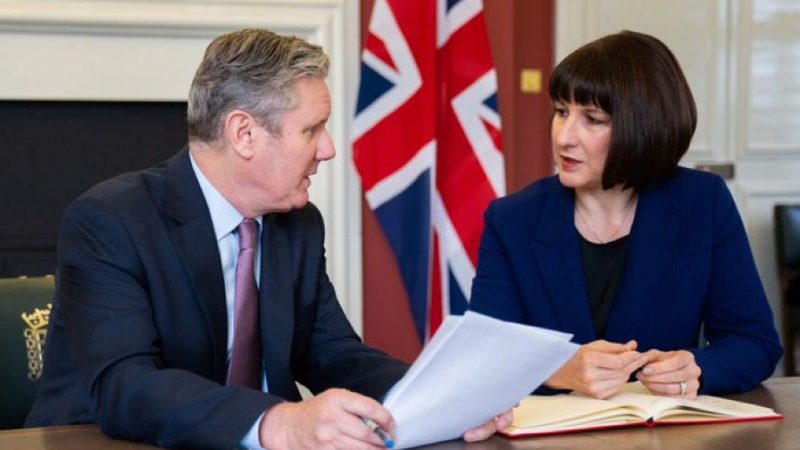
In all the conversations I’ve had in focus groups about the cost-of-living crisis, not once (I think) has anyone, unprompted, suggested that the answer was an income tax cut.
In the last several years, I’ve spoken to hundreds of groups of ordinary voters – some rich, some poor; some northern, some southern – and the tax burden has only very rarely been brought up.
This was why I was worried – and not to say a little confused – to read earlier this week that the Shadow Chancellor Rachel Reeves was considering promising the electorate a “retail offer” tax cut.
The idea that tax cuts are a vote-winner seems misguided
“We need to show that we get what people are facing, that we’re on their side. There should be a flagship offer on tax,” a leading Labour frontbencher told The Times. The same article suggested that such a policy would also be part of the strategy to drive up productivity (an absolutely central ambition of both Keir Starmer and Reeves).
Starmer added today he wanted lower taxes on working people “on principle”, but said growth was what was key and any tax changes have to be “fair and affordable”.
But it does also feel rather like the party’s leadership is being bounced into an unnecessary tax-cutting position because this is what Rishi Sunak and Jeremy Hunt are expected to announce in their pre-election Spring Budget. The idea, which seems to have taken hold in both parties’ leaderships, that tax cuts equal vote-winners, seems to me to be misguided.
There are three reasons for this. Firstly, the tax burden is not what people blame for the cost of living. Mortgage rates, food inflation and the cost of heating and fuel are what voters think are responsible.
Secondly, voters know the national finances are screwed. They believe that if a government of any colour were to genuinely cut taxes, the country – and especially the services provided by the state – would be even more knackered than they are now.
Thirdly, they don’t actually believe politicians when they talk about tax cuts. Such is the level of cynicism about the political classes, if you suggest a politician is planning to reduce VAT or slash National Insurance or whatever, they will tell you that “the money will have to come from somewhere” and that ministers will probably introduce another tax elsewhere to pay for it.
Offering tax cuts may undermine Starmer’s pitch to voters
Much better that, when Reeves and Starmer are faced with a (not so populist) tax-cutting budget in March, they be honest with the public about the state of the national finances, which is something voters care deeply about, and then talk instead about rebuilding public services.
And if they want to combine this message with one about productivity, then they could do a lot worse than promising to spend the cash that would have been spent on a tax cut on really sorting out the childcare nightmare that this country is in – and then expanding free high-quality provision to more families.
Explained well, voters will understand why this is a good policy for mums, dads, kids and the economy. Sunak himself promised to do something about this quagmire last year and already appears to be failing.
The truth of the matter, though, is that a “retail offer” of a big personal tax cut risks undermining Starmer’s best two pitches to the country. Firstly, that as a public servant he will focus on rebuilding this country’s broken public services.
Secondly, and most importantly, that he is a sane and sensible manager who will focus on stabilising and rebuilding the country – not flailing around making fiscal commitments that look short-termist, at best.
Please please leave the fake promises of tax cuts to the Tories. They’ll just piss voters off.




More from LabourList
Scottish Parliament elections 2026: Full list of Labour candidates for Holyrood
‘As metro mayors gain power, Labour must tighten political accountability’
Letters to the Editor – week ending 22 February 2026